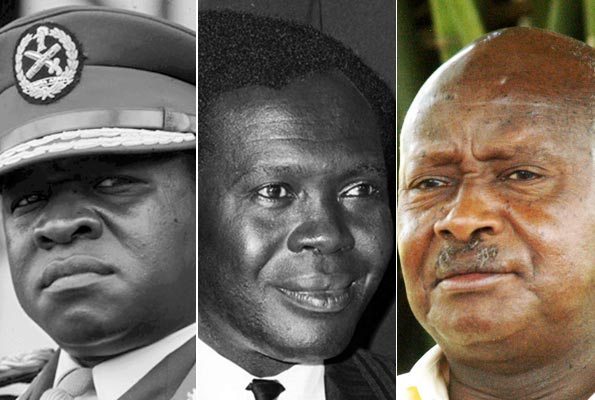KAMPALA: Even as they are resting in peace in their graves, President Yoweri Museveni on Tuesday blamed his predecessors Dr. Milton Obote and Idi Amin Dada for the economic hardships that the country faced before his National Resistance Movement (NRM) usurped power in Uganda in 1986 to revive the economy.
Museveni accused the two past leaders while speaking at the two-day Africa Now summit taking place Commonwealth Resort and Conference Centre, Munyonyo, Kampala where he slammed the post-independence military governments for engaging in primitive fascism and retarding Africa’s growth and the expulsion of Asians by Idi Amin saying it was a mistake that took Ugandans back.
He said both Obote and Amin interfered with the private sector with Nakivubo announcements of 1970 and Amin’s expulsion of the Asians in 1972 respectively. “It is the NRM that firmly rejected this mistake by returning the properties of the Asians and liberalizing the economy. These sectors we liberalized by removing the role of the State companies have performed miracles. We sold government buses and hotels, for instance,” he said.
While speaking on the type of leadership needed to spur Africa’s transformation, the president said Ugandans have built more than one million properties in Kampala and Entebbe after being chased from Indian houses that they were occupying illegally.
“I told them, return the property of Indians. And when we were doing that, the whole Parliament was full of people sleeping in Indian houses. I nearly developed throat cancer trying to convince these people to leave Indian houses. Now they have built more, Kampala and Entebbe are now one town built by Africans,” he said.
Museveni also said that the problem with Africa has been that in the last 600 years, the African society has not metamorphosed.
He said in some aspects, the African Society has regressed. “The African artisan class was wiped out by the colonial imports. Their artisan products were now monopolized and replaced by colonial products ─ plates, spoons, cooking pots, textiles, leather products, etc. The feudal class, which was competing for power with the colonialists, was decimated and was replaced with the colonial civil servants,” he said.
The two-day event is co-chaired byMuseveni alongside other Heads of States and key business leaders on the continent.
The President of Somalia Mohamed Abdullahi Mohamed Farmajo, Deputy Presidents of Kenya; William Ruto, Tanzania’ Samia Hassan Suluhu and a representative of the President of Egypt are present.
The conference aims to harness the interminable energy of the African youth in forging a secure, integrated and growing Africa.
The four thematic areas of concern at the summit are; leadership, youth – finding an Africa that works for the African youth, finding African solutions to problems and achieving partnerships
Mr. Museveni commended the organizers for the “thoughtful” idea of starting a Pan-African think tank. He noted that its investment in research that has enabled Western societies to generate knowledge to sustainably solve their challenges.
Dr. Robert Mwesigwa Rukaari, the ASLC Chairman Board of Directors said “this is a private led think tank.
“Our main theme for this summit is; a secure, integrated and growing Africa. We have picked topics of discussion from this theme and these will be discussed during this 2-day summit,” he noted in opening remarks.
Others include African top CEOs, researchers, politicians, diplomats, media, activists, and key leaders to engage in an interactive debate and find solutions to the challenges affecting Africa’s political and economic progress.


